
by Khalida Lockheed | May 7, 2021

The International Baccalaureate is not only for Diploma Program students, 11th and 12th graders. The IB Organization offers programs in the Primary and Middle years, preparing students to be global citizens, transdisciplinary thinkers, and well rounded people.
Like other IB schools in Costa Rica, Futuro Verde, is not authorized as a “continuum school” offering all three programs. However, by offering the capstone Diploma Program, in order to properly prepare students to be successful has required that we align the primary and middle years’ curriculum to IB.
What does this mean?
It means that all teachers, at all levels, must learn about the IB programs and ensure students are meeting the required standards.
Furthermore, the IB programs and courses are continuously undergoing revision with updates and thorough course program review and revision every seven years. IB encourages teachers to participate in this process making it a collaborative product.
Okay, you say, it makes sense that teachers and students should learn about and practice the IB program at their level. But what about families? As parents of students in a private school, it is clear that education is an important value in your family. Why it is important for parents to understand the program of study of their children became more apparent during the last school year when the pandemic sent students home for virtual learning.
We all experienced school in a new way over the last year!
To this end, we invite you to visit this space for more information and an overview of the IB. In addition, we will be organizing parent meetings to further inform and learn about the IB programs and what it means for students at every level.
Keep tuned!
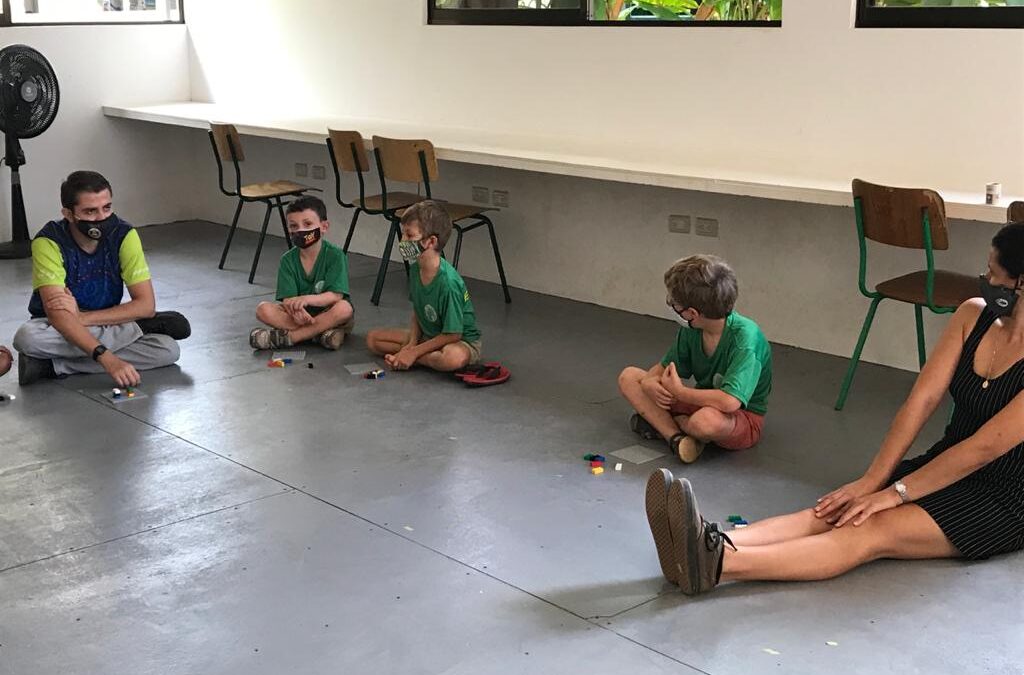
by Noelia | Apr 27, 2021
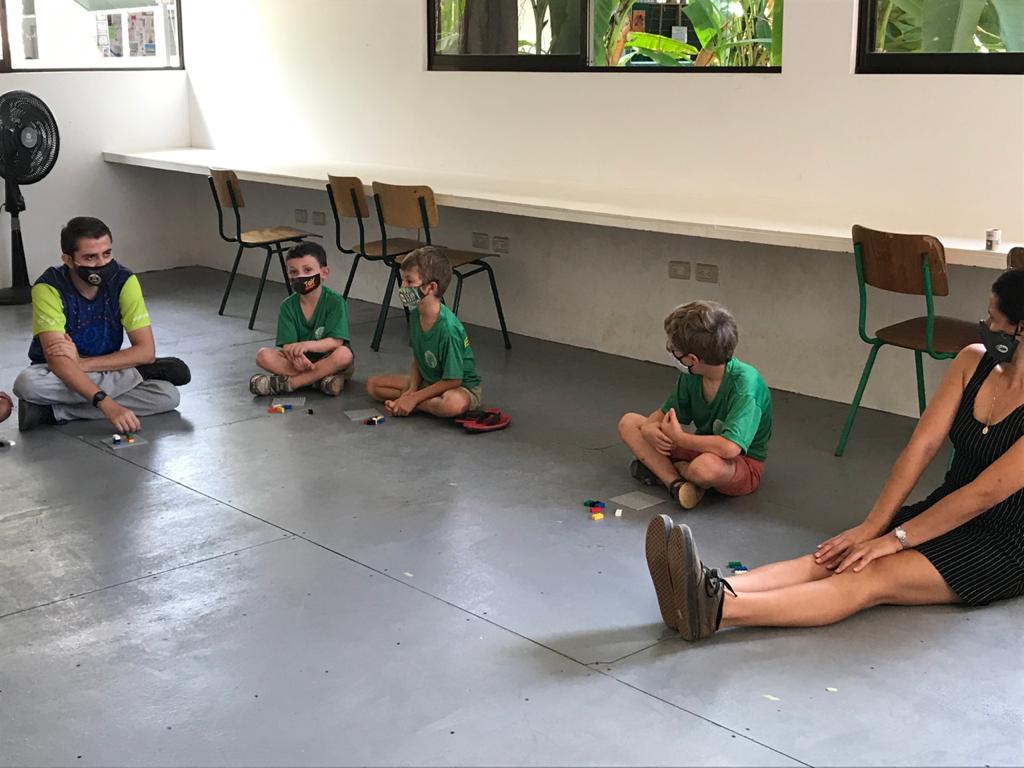
This 2020-21 has been atypical for our children, where we have had to migrate to a digital age that we were not used to. As part of the additional support for the boys, we implemented the robotics course.
This discipline gives us an early approach to the STEAM environment in which the jobs of the future are found, allowing students to develop soft skills such as programming, design, teamwork, among others.
An important point in this program is the approach to steam careers (programming, Electrical Engineer, Mechanical Engineer, Product Design Engineer). This allows the student before choosing their future career, to have a glimpse of the skills necessary to perform in these careers and not go blind in their choice.
Our robotics program seeks to open all these spaces, to bring children closer to the 4.0 industrial revolution that is diversifying the work spaces of the future.
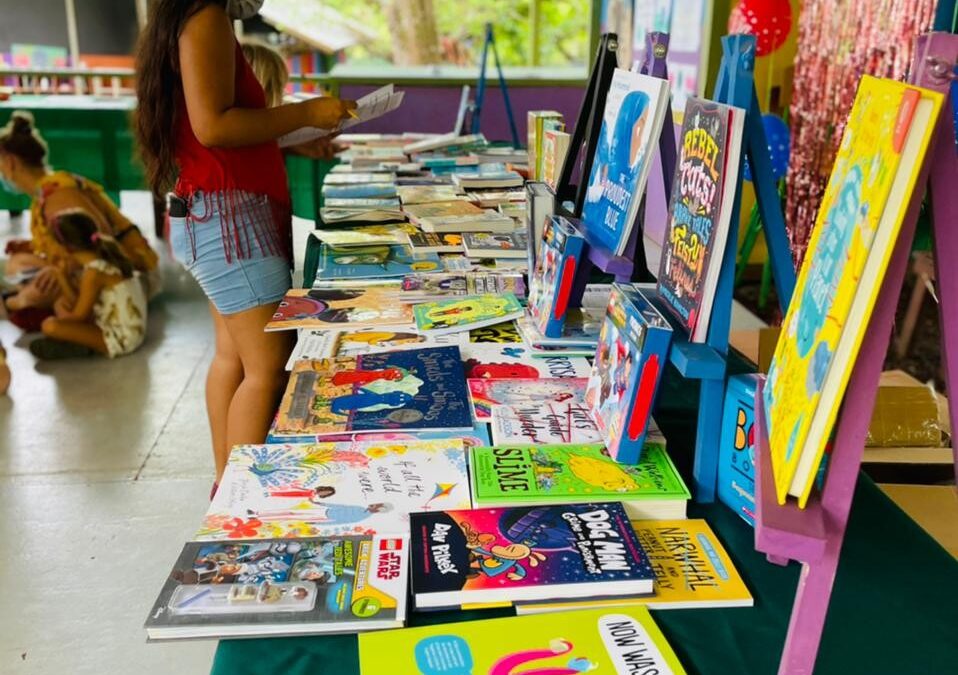
by Hileyn | Apr 23, 2021

On April 23rd we celebrate International Book Day. It is a commemoration for the promotion of reading, the publishing industry and the protection of intellectual property. Cervantes and Shakespeare (among some other famous writers) passed away on the same day that is also why it became a symbolic date.
Although on this date the objective is to encourage people, especially young people, to discover the pleasure of reading, this is not an easy task. Jiménez Martínez mentions the purpose of encouraging reading in:
Books and their reading give the human being absolute freedom. Hence the importance that our children become readers with the desire to resort, on one hand, to reading as a will and to satisfy their demand for information, and on the other hand, to satisfy the need that both adults and children have to build a world outside the reality in which we live, in which we can give freedom to our fantasy and that allows us to enjoy and fly without any ties. (2004, p.25)
In school, reading is taught as a mechanical act, but by including reading along with a school library and meaningful activities, reading becomes an integral process of the person. While listening to a new story about a favorite subject, the intellect discovers new aspects and points of view. Also the physical and social emotional areas of the person develop as they play or dramatize a story.
Children are not exempt from discovering the world every day, and storytelling is part of this exploring process. That is why children should not be forced to read, but should be motivated to do so in a healthy way, so that their academic performance and personal development can be greatly improved. The child should choose for him/herself the book he/she is motivated to read, in this way he/she will feel the power of freedom.
We have to remember that reading is a right and forcing children and young people to read is useless. The consequence will be that children relate reading with an academic or mandatory moment instead of a moment of leisure and love for reading.
Parents can motivate their children to adopt the habit of reading by following these tips at home:
Being an example
Children observe their environment and learn from it, that is why at home, parents must set an example of reading. It is not possible to transmit a desire for reading if at home there is no time for it. If parents do not show their children that they are also able to take time and read but above all enjoy it, it will be very difficult to transmit it to their children.
In a traditional home if a family takes time to watch television every day, the children will learn what makes them happy and imitate their parents. It’s time to change our perspective and take that time as adults to read at home.
According to Arri ”People who like to read usually have had a family member who has passed on to them a passion for books. Lack of time is no excuse because when you really want something, you find the time to do it” (2012, p.313).
Reading together
Reading is not always an activity that should be done individually, this could cause the children to feel isolated, especially in early years. Reading time can be a great time to spend with the family. When children listen to their parents reading, they understand the message of the story better, so they can also read together and bond through reading.
Make some noise!
Reading aloud could be very beneficial, especially for young learners who are having difficulties during this learning process. It is also useful to teach them the pace and tone of appropriate reading. Sounds and different voices also make a big difference. Goodbye silence! Welcome to the sounds that can accompany our stories and make them more fun and engaging.
Reading aloud extends the attention span and it also helps improve the children´s pronunciation.
Reading should not be an exam or punishment
Sometimes the word exam could be related to stress and anxiety, that is why we cannot turn reading into a questionnaire, the reader has the right to remain silent while reading.
Reading is a prize, lets not condition it as a reward on doing something. “If you don´t read, you won’t have time for videogames”…
Right to choose
Parents can analyze the contents of a book, or the complexity of it, but should not place obstacles when choosing what to read. if it has controversial issues and the young person wishes to have access to this book, it is better to read it and reflect on the subject together, than to deny it. If the reading level is higher, we let the same reader experience and reconsider another.
Remember reading is what can set us free, let our children discover new opinions, places and worlds!
References
Arri, M. A. (2012). Errores de padres en su afán por que sus hijos lean. Boletín de La Asociación Andaluza de Bibliotecarios, 27(103), 312–314.
Jiménez Martínez, Lutgardo. (2004). Bibliotecas escolares: en un lugar de la lectura. Boletin de La Asociación Andaluza de Bibliotecarios, 19(75–76), 135–147.
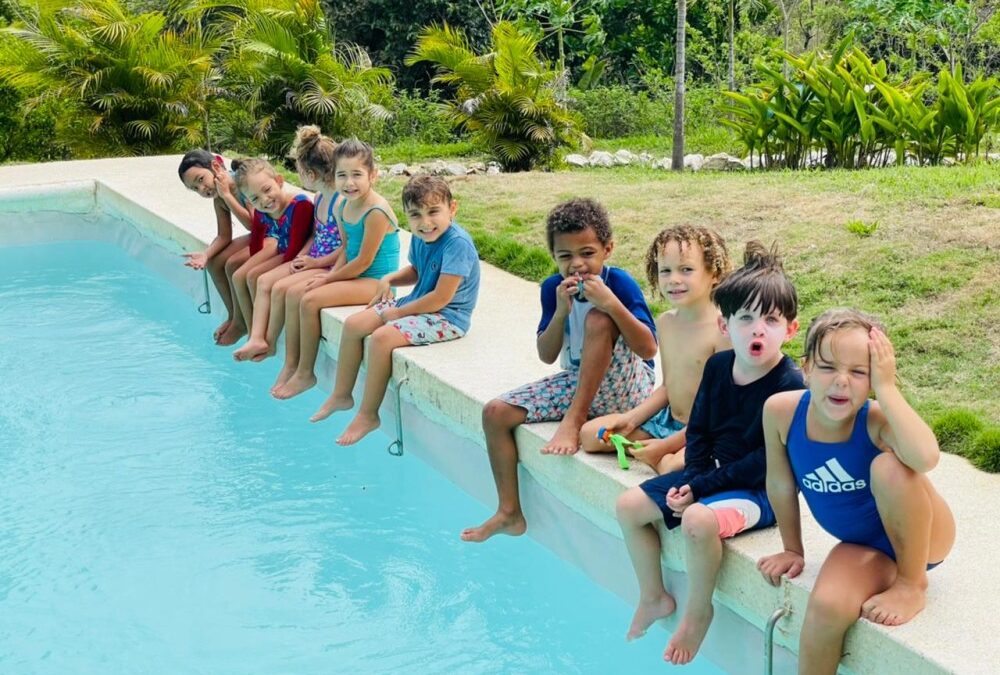
by Juan Ignacio Diano | Apr 6, 2021
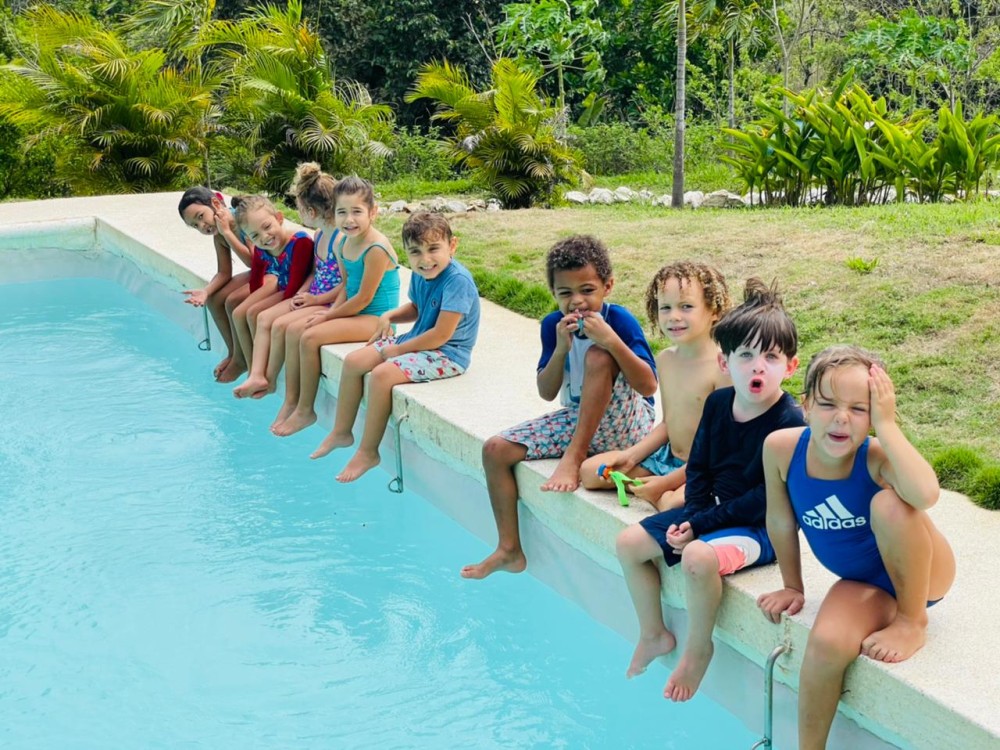
The role of sport in society and in the future of the next generations is often much more relevant than we sometimes think. Sport is not only related to health, it also means companionship, respect, discipline, sacrifice, cooperation, competitiveness, teamwork, coexistence, equality, justice, empathy, creativity, perseverance, humility, fun, self-discipline, and self-knowledge. These are values and virtues that are essential, not only in the areas of sports, but must be applied to our daily lives, in order to live in a society that is constantly developing, and in which peace can prevail.
With all these attributes, we can confirm that sports have a wonderful impact in changing people, and why not, in changing the world. Sport should never be a privilege only for some, sports are a right, to which everyone, from a young age, should have access, and we should be encouraged to do so. If we know how to take advantage of its benefits, sports will be a fundamental tool to strengthen bonds, objectives and solidarity.
During the International Sports Day Month for Development and Peace, which is celebrated on April 6 each year, we will encourage our children to participate in physical activities that improve our health, well-being, and quality of life as individuals and as a community. Sportsmanship and teamwork is a very powerful tool for learning to overcome difficulties and challenges, such as those we have had to experience in the past year as we have gone through the Covid-19 pandemic, which we are still fighting against.
On this special occasion, for those of us who are passionate about sport and healthy living, we take the chance to reflect and give the deserved recognition and value to sports and the role it plays in our lives, in the development of our children, and in the peace of our societies.
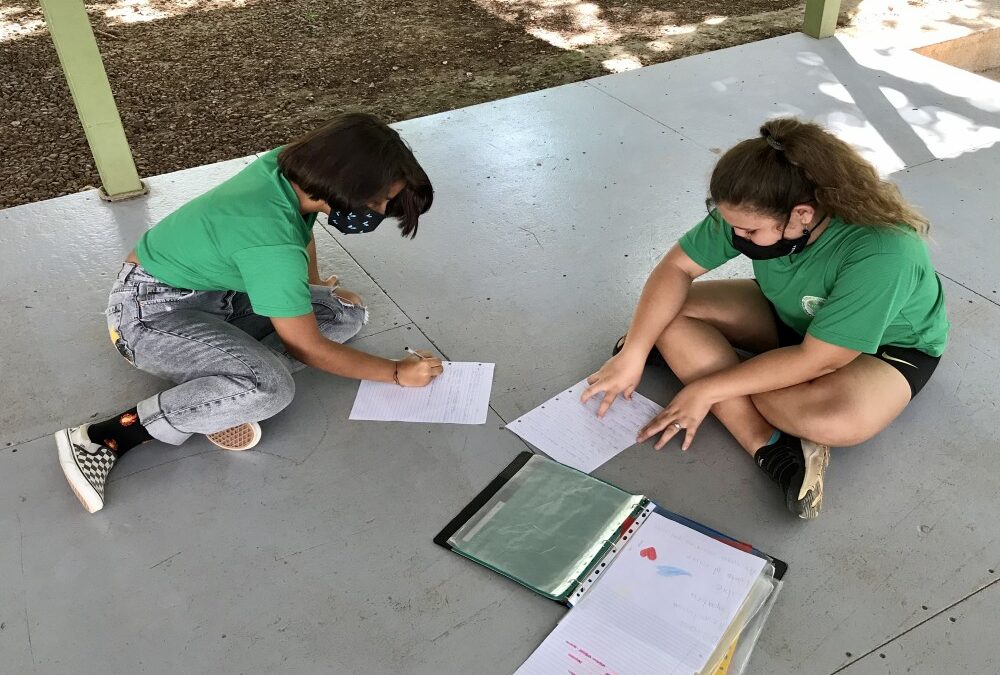
by Angie Briceño | Mar 4, 2021
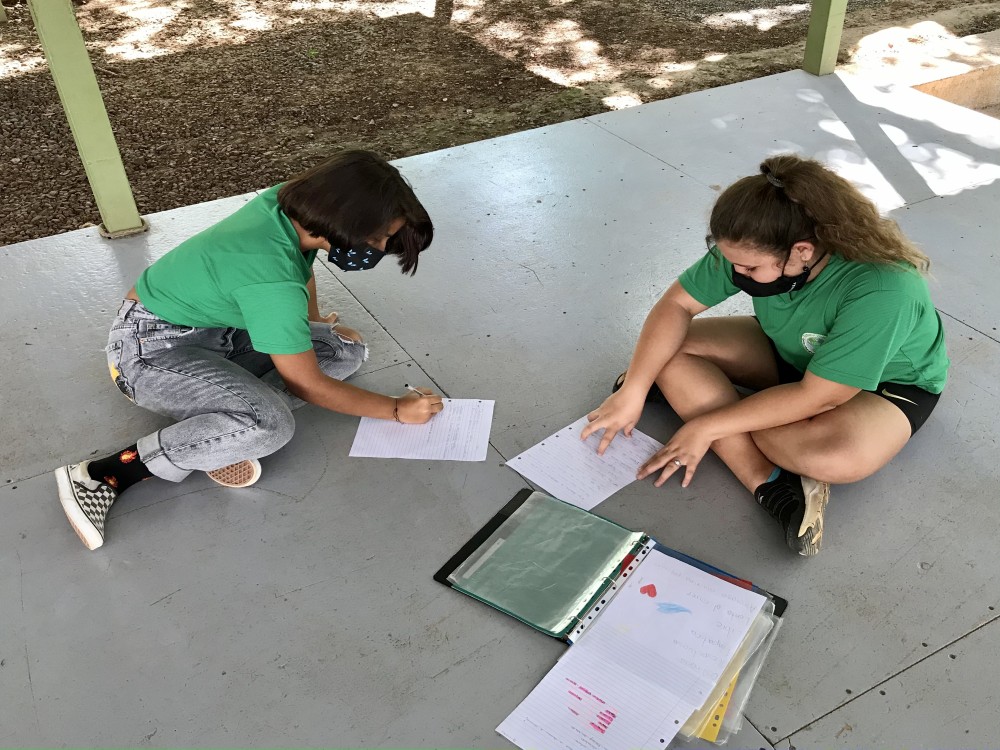
The time is approaching when teachers send home mid-semester reports. Mid-semester reports are just as important as end-of-semester grades, if not more important, because the purpose of these reports is to inform families about their child’s academic and class progress during the first semester.
The mid-semester reports for elementary and junior high school grades come with specific sections related to the student’s academic performance in the different areas in the different subjects they are studying.
This year there is going to be a major change in students’ mid-semester reports, as the report recognizes and endorses the different areas of the student:
- Attitude: Has a positive and respectful attitude towards peers and teachers.
- Delivery: Complies with the delivery of assignments and activities performed in class.
- Skills: Develops the skills and acquires the knowledge expected in the class activities or assignments.
- Effort: Demonstrates your best effort.
Sending the reports is an excellent time to talk to your child and also, do not hesitate to contact the teachers if you have any questions.

by Noelia | Mar 4, 2021

By Melanie
The festival of the French language is celebrated on five continents. Why? It seems that 274 million people speak French, in France, Belgium, Quebec, in most African countries… with different accents! People everywhere use the same words and the same grammar. But it took twenty-five centuries to invent this language.
What are the origins of the French language?
The origins of the French language go back more than 2000 years. At that time, France was inhabited by Gallic tribes. Among them, they used the Celtic language to understand each other. In the year 51 BC, a great upheaval occurred in the land of the Gauls. The whole of Gaul was conquered by the Roman troops of Julius Caesar. As the Romans were fluent in Latin, this language became the official language of Gaul. Very proud, the Gauls have long been communicating among themselves in their official language. It would be a few hundred years before these two languages merged to form a new one. Do you know what they called this new language? French.
Who invented French?
Despite what one might think, the French language was not invented by a single person. Over the centuries that followed, the French language evolved slowly, at the pace of conquests and the opportunities of history. In the Middle Ages, more variants of French dialects were still spoken in the different regions of France. Because Paris became the capital of France in the 12th century, French should prevail throughout the region.
Although the French language is now defined by dictionaries and grammars, it continues to evolve. If ancestors are banished from the vocabulary, authors are invented to describe new reals.
What is Francophonie?
The Francophonie is part of a community of people who speak French. It is also all the countries or regions where French is spoken. In the world, 57 countries are French-speaking. Examples include Switzerland or Belgium, Quebec in Canada, Haiti or Madagascar. In 30 countries or regions, French is the only official language. It is used by politicians, in the media and taught in schools. This is the case in France, of course, but also in the French overseas departments and territories and in many African countries such as Benin, Burkina Faso or Côte d’Ivoire. In 26 countries, French is one of the official languages, but it is not the only one. In Switzerland, we speak French, German and Italian. In Canada, it is the official language of English. In the city of Pondicherry, India, French is the official language along with English and three Indian languages. There are also countries where French is not the official language, but is nevertheless used by their inhabitants. If you have been to Morocco or Algeria, you may have noticed that the people speak our language very well.
Why do we speak French outside France?
Most French-speaking countries or regions are former French colonies (see the dictionary of the day). This is the case, for example, of Senegal, Madagascar, Quebec, Haiti or Pondicherry. France occupied these countries at the time of the colonies and imposed its language there. After independence (these countries became autonomous), some of these countries continued to teach French in schools and to use it in their administrations. But there are also French-speaking countries that are not former colonies. Belgium, for example. In fact, France’s borders have not always been as we know them today. Throughout history, they have moved. France’s borders extended to the south of Belgium and the north belonged to the Netherlands. For this reason, the official languages of Belgium are French in the south and Dutch in the north.











